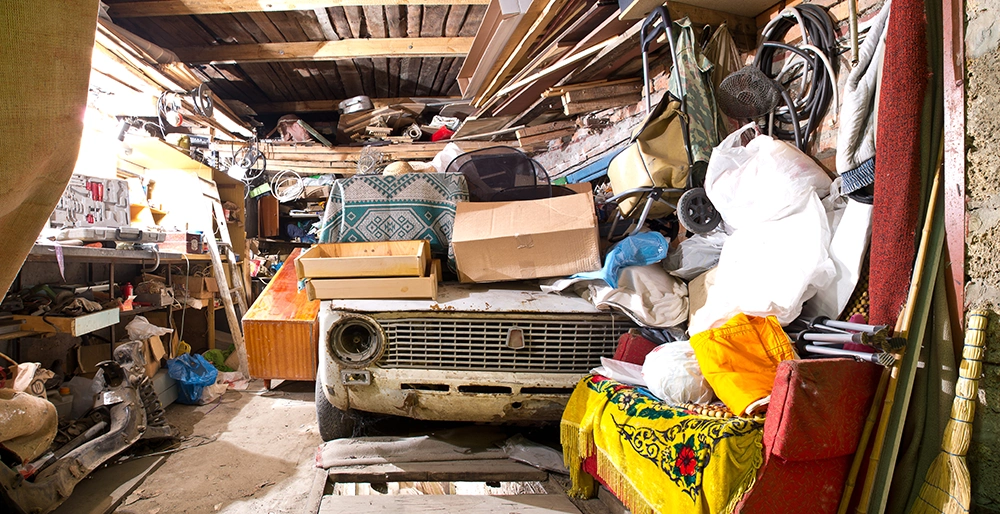There a widespread perception that the typical Clutterer in the UK is someone close to pension age, living on their own with little money. But is that stereotype true? In this article, we are going to investigate and reveal all you ever wanted to know about Clutterers.
When we were first asked to investigate this issue, we believed it would be a straightforward story about people who never left their homes, were highly disorganised, and had some kind of disorder that prevented them from disposing of everyday items they no longer needed. As we delved deeper into the story, we started to get that sinking feeling that the issue is much more complex and, in some ways, affects just about all of us, but in different ways.
Why Are We Doing a Story on Cluttering?
Well, there are popular theories out there that people who have a habit of Cluttering are disorganised, unable to pay bills on time, and unable to look after themselves or others. We wanted to take a look at the financial aspects of their lives, but to do that, we need to look at the issue as a whole.
How Real Is Cluttering?
Whenever we approach a story, we try to establish the facts with an open mind. We set ourselves a goal of starting right at the beginning and asking the most basic questions. In this story, we had to rule out the theory that Clutterers didn’t actually exist, and if they did exist, how widespread it was within the population of the UK.
We discovered that there are sites and organisations that help people with severe Cluttering disorders. One of these organisations is called Clutterers Anonymous UK. There are regular meetings where you can take family and friends as support.
From looking at the images on their website and after seeing evidence from a number of highly respected healthcare providers, there is no doubt that there is a problem.
The Different Types of Clutterer
There are three main types of Clutterer. Forget what you see on TV; those who have their homes filled with what appears to be rubbish are the extreme minority. The vast majority of Clutterers would pass you by in the street, and you’d never even know.
Physical Clutter
We have all seen these sufferers on TV documentaries—people who hoard magazines and newspapers in their homes to the point where they can no longer enter or leave their properties without climbing over their items. While they may appear terribly disorganised, what we found is the opposite. They are highly organised; most of the people doing this have highly sophisticated mental indexing systems and can locate items from any part of their property for any item you ask them to recover.
One of the other striking aspects of these people is that Clutterers are nearly always property owners without mortgages; they own their homes without debt. In fact, it’s almost unheard of for them to even have credit cards. Certainly, none have Quick Loans, and their credit records are impeccable as they don’t usually have credit agreements. Most will have been living with family members well into their adulthood and will have inherited their properties. Out of the cases where the Council has had to intervene and clear out the properties, 78% were owned outright by the Clutterer.
Digital Clutter
This one scared us because we could see ourselves in this one. Up until this point, we had never considered that we were Clutterers of any kind. Most of us only need to look at the Photo Gallery on our phones to see that we are unable to dispose of photos that we are never going to use. If we then take a look at our email inboxes, we’d probably see more clutter.
For our own data security, it’s important to dispose of old digital property, but most of us never do. We are more than content to leave it sat on our devices, even though we know full well that we are never going to use it.
Mental Clutter
Most of us are guilty of this one too. In today’s world, we tend to bite off more than we can chew in the way of responsibilities. We take on too many tasks and fail to organise ourselves properly. At some point, we overload and then realise that the old saying is true—we can’t see the woods for the trees. This is a perfect example of how cluttering up our minds can have debilitating effects on our emotional wellbeing.
While the extreme Clutterers may be in the physical hoarding section, the vast majority of us are Digital and Mental Clutterers. The reason for this is simple: it’s much harder to spot in people and help them take action. We can all see a problem when a friend’s home is filled with newspapers from the 1950s, but we find it much harder to spot when a friend or family member is buried under mountains of digital or Mental Clutter.
Which Is the Biggest Clutter Problem?
At first glance, most of us would say that the Physical Clutterer is the one in need of the most help; after all, the items they are hoarding could catch fire and burn their house down. But the downsides of Digital and Mental Cluttering are just as serious. Certainly, the digital side has some dangerous side effects for people’s credit records and identity theft. Mental cluttering can lead to some seriously bad outcomes.
Fixing the Clutter Problem
The Physical Clutterers have a head start on this; they usually have some really valuable items that they could sell and make money from. Councils and local authorities say they are amazed by the value of the goods taken when a cleaning order is made. To recover the cost of removal and disposal, councils will try to sell the items they believe have monetary value. It would be much easier if the property owner were to do that themselves before the process got that far.
Those with Digital Clutter problems just need to be brave and hit that delete button; it only takes a few clicks and the problem is gone.
As for Mental Clutter, the advice from experts is clear. Stop taking on any new projects or tasks. Always complete a goal before starting a new one. Too many ongoing tasks will overload a person's ability to cope. This is especially true when it comes to financial clutter and taking on new debt before old debt is repaid.


